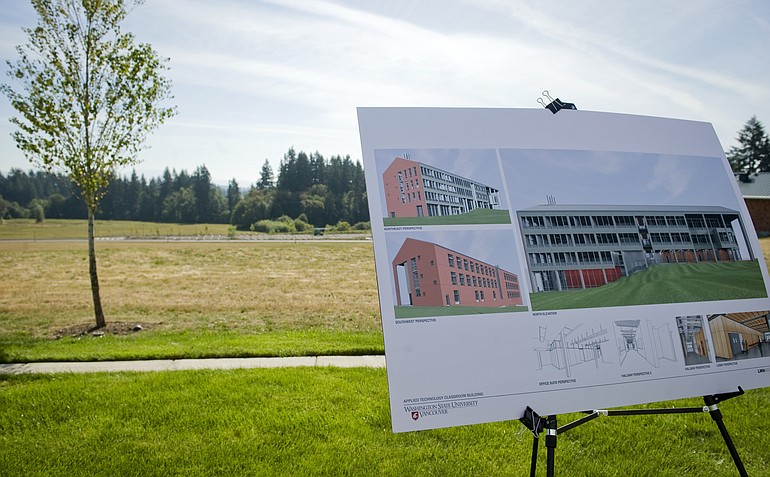Washington State University Vancouver stands to gain more funding under the state higher education board’s new long-term strategic plan, headed from the legislature to Gov. Chris Gregoire’s desk in the coming week.
But the plan directs those extra resources toward boosting undergraduate programs, while funding for graduate-level education and research would be concentrated at Washington’s two flagship campuses, WSU in Pullman and the University of Washington in Seattle, said Ann Daley, executive director of the Washington Higher Education Coordinating Board in a presentation Friday at the WSUV campus.
Facing additional cuts in public funding for higher education, the board last year unanimously decided to focus state resources on its primary goal: to increase the number of college graduates in the state by 40 percent in the next decade. The university system’s five branch campuses are the target of those efforts because they offer lower-cost programs in diverse geographic areas of the state.
“Branch campuses like WSUV are first in line to be the places that we grow,” said Daley, who retires from her post on the board next month.
Such a shift in strategy could rob WSUV of the chance to offer graduate degrees in high-tech fields such as engineering and computer science due to the programs’ higher operating costs. The school has invested heavily in developing its science and engineering programs in recent years, with the completion last summer of its $43.5 million Applied Technology Classroom building and construction under way on its $28 million electrical engineering building.
“I’m concerned that the plan, while trying to fix the access problem, may be inadvertently eroding our startup research facilities, and with it, our chance of doing innovative work with the regional industries,” said Hakan Gurocak, director of WSUV’s School of Engineering and Computer Science.
WSUV Chancellor Hal Dengerink isn’t concerned with the plan’s new segregation of research universities from their branches, however. He says the school can pursue other forms of funding for its programs through foundations and other research grants.
“I don’t see it being an issue for our long-term strategy,” Dengerink said. “There’s nothing about that label that slows us down.”
State funding cuts in higher education come even as Clark County’s technology industry pushes for more local research facilities that will help boost the pool of job candidates with technical degrees as well as create spinoff businesses that fuel innovation.
“We’re concerned with not seeing enough science and engineering grads,” said Lewis McMurran, a lobbyist with the Washington Technology Industry Association.
“We’re starving our industry and continuing to find people from other states,” he said, “and we’d rather see our own kids in those jobs.”



